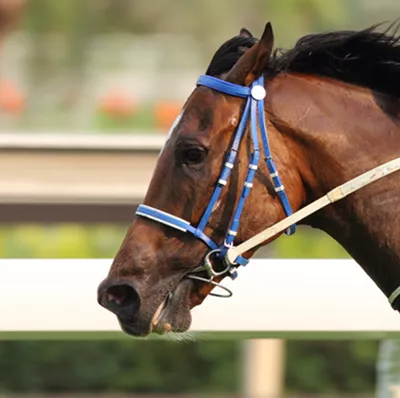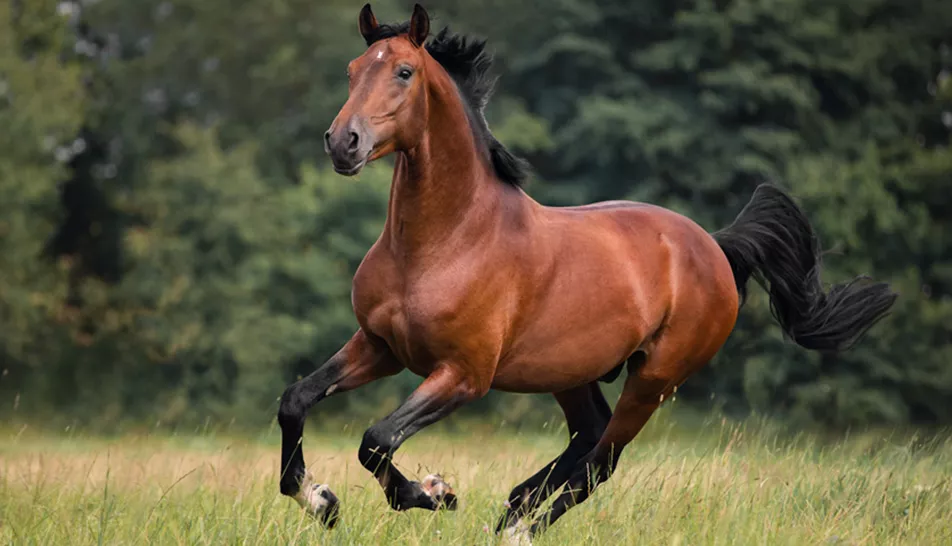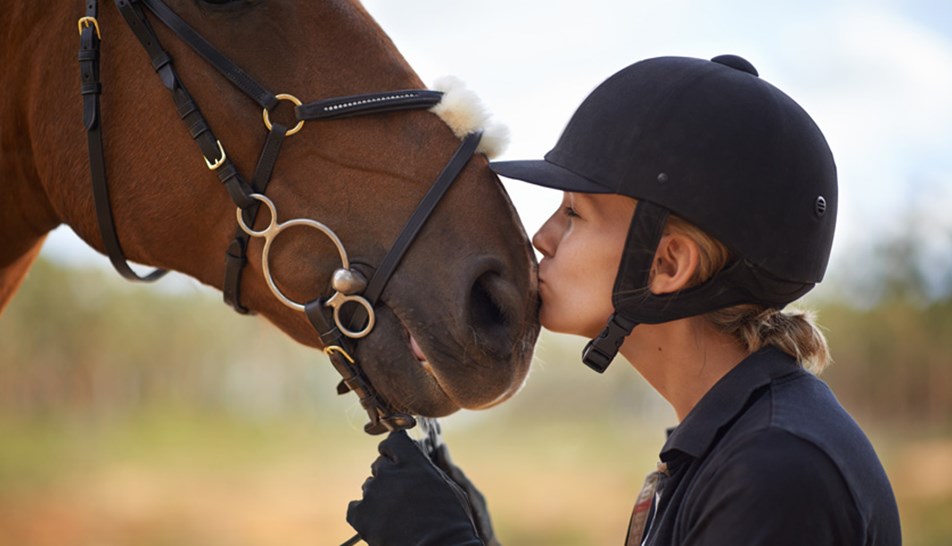Equine Insurance
We are a specialist equine insurance broker with a passion for horses.
- Our team of equine enthusiasts care about protecting the things that matter to you most, giving you peace of mind that you’ve got the right cover in place.
- We offer tailored equine insurance to meet your needs.
- From horses and ponies, horseboxes and trailers, livery yards and equestrian properties to breakdown cover, we can provide you with a wide range of cover types available to suite your needs.

Our key equine insurance polices

Bloodstock and Racehorse
Tailored insurance for bloodstock and racehorses from the UK's top equine specialist brokers.
Read more Get a quote




Livery Yard and Stables
Read more

Why choose equine insurance with Towergate?

Equine insurance experts
You can be sure that you’re speaking to someone who understands your needs.

Specialist racehorse insurance
A horse insurance policy designed specifically for racehorses competing at a high level.

Tailored equine insurance
Specialist cover that can be adapted to meet each of your horse’s individual needs.
Understanding equine insurance

Equine liability insurance
As part of your horse insurance policy, public liability cover will protect you against the costs incurred by members of the public suffering personal injury or property damage because of your horse. Most polices we can provide will offer at least £1 million if you are sued because your horse has caused injury or damage, and can cover up to £5 million. Contact your insurer to find out more details.

Multi horse insurance
Our multi horse insurance policy offers exactly the same cover as individual horse insurance policies. Each horse can be insured for different activities, vet fees, public liability cover etc. The only difference is that we group together the individual policies under one policy with one renewal date and one premium, minimising the stress of you trying to manage several policies at a time.

Market value replacement for your horsebox
Our horsebox insurance products offer true market value and don’t assume that it depreciates at a set rate each year. This means that should you lose your box, or have it stolen, our insurers will work with you to calculate the actual market value of your horsebox at the time of loss.

Personal and commercial stables insurance
A busy commercial livery yard might present a higher level of factors for essential cover. However, whether you use your stable for personal or commercial use, we will be able to offer advice along the way, to help you find the right cover. We can help you reduce your risks for jumping courses or facilities (such as a horse walker), which are inspected periodically to check they meet health and safety regulations. Naturally, all stables’ insurance premiums and rates are dependent on risk and business factors.
When you need to make a claim, we'll guide you through the process and get your claim settled as quickly as possible.
- Find your insurance documents and make sure you have all your information at hand, including your policy number.
- Call the claims team on 0344 346 0228 and explain exactly what happened.
- Provide photos if requested to help us understand what happened as quickly as we can.



Equine insurance FAQs
Although it is not a legal requirement to hold horse insurance, owning a horse is a large financial commitment. It is key to insure your horse before it suffers an illness or injury, which may be expensive to treat and will be excluded from any future horse insurance policy.
Whether you have horses for personal or business purposes, equine insurance is highly recommended. Horses are an expensive investment: illness, injury, theft or an accident may result in high compensation and legal bills, but equine insurance protects you should the worse happen.
This depends on whether you have horses for personal or business purposes, but key aspects are:
- Cover for the death of your horse
- Public liability insurance
- Horse rider insurance
Insurance for the death of your horse protects you against the costs of accident, illness or disease it suffers. We can also cover you for removal and disposal of the body.
Public liability insurance is a key part of your equine insurance, as it protects you against legal costs incurred by injuries to members of public and damage to property, caused by your horse, horsebox or trailer.
You can also include horse rider insurance, which covers you and others against personal accidents incurred when riding your horse with your permission.
Exclusions vary by policy and insurer, but below are some common exclusions:
- Pre-existing medical conditions - Cover will not be offered for illnesses or injuries your horse suffered before you took out the policy. This means if the same problem occurs again, your horse will not be covered.
- Age limits - We can insure a horse up to 19 years of age on full cover, but veteran cover is available from 16 years old.
- Medical prerequisites - Cover will sometimes be refused if your horse has not been vaccinated or wormed.
- Hospitalisation - Some policies will not cover hospitalisation of your horse.
- 14-day exclusion - Most policies will not cover any loss arising from illness or death sustained by the horse during the first 14 days from inception of cover.
Understanding the horse world and the UK equestrian insurance market is essential when taking out equine insurance. This is no light task: with so many different providers and options it can seem that no one choice is right. To make it easier for you, we've put together this guide to horse insurance.
Before taking our horse insurance, it is worth considering which covers are going to be the most important to you. The minimum cover available will be for: the death of a horse, theft and straying.
Different levels of horse cover exist, providing varying benefits, so make sure you choose the right one for you. Some of the most common features available are:
Cover for the death of your horse - Insurance for the death of your horse protects you against the financial costs of the accident, illness or disease suffered by your horse. Removal and disposal of the carcass may also be covered.
Cover for theft or straying - If your horse is stolen or strays, insurance for theft or straying will cover the cost of advertising your horse as missing, up to a certain cost. If your horse is not recovered within 28 days of it being stolen or straying, you may be covered for the market value or the sum insured.
Public liability insurance - As part of your horse insurance policy, public liability cover will protect you against the costs incurred by members of the public suffering personal injury or property damage because of your horse. Most insurers will offer a limit of at least £1 million if you are sued because your horse has caused injury or damage. Contact your insurer to find out more details.
Personal accident cover - This will add approximately £15 – £30 to your annual premium and will insure you and anyone else riding your horse with your permission, for death and accidental injury. Many insurers will offer cover of around £10,000 to £20,000 in the event of death or permanent total disability. However, Personal Accident under a Horse policy is designed as catastrophe cover and is limited as such. Many of us would want to include a weekly benefit, which is generally not available under these policies.
If this cover is inadequate you should be thinking about a separate Personal Accident policy that will include Temporary Total Disablement. This can provide the policyholder a weekly benefit if you are unable to carry out your normal occupation. The Horse policy cover is limited to riding or handling the insured horse only, whereas a separate policy can cover the insured whilst riding any horse and can also include other activities as well.
Permanent loss of use cover - Permanent loss of use cover is an optional add on and covers you if your horse can no longer be used for the activities you insured it for, for the sum of purchasing another horse for the originally intended purpose(s). However, if your horse is still capable of breeding, the insurer will usually only cover part of the sum.
Vet fees - This covers vet bills (with a maximum cap) and will require you to pay an excess. Within the sums insured, vet fees could also include costs in respect of alternative treatments - if recommended by a vet - along with livery charges whilst at - and transportation costs to and from a surgery, college or hospital.
The cost of your horse insurance policy can be split into two parts: the insurance premium and the excess. The premium is the overall cost you will pay for your insurance policy. The excess only comes in when you need to make a claim and is a cost you pay towards the claim.
The price of a horse insurance policy is based on a variety of factors, including:
- Your horse's age - The chances of your horse becoming ill will increase as it ages. While foals are more likely to get into difficulties while learning how to walk.
- The activities your horse takes part in - Different activities carry different risks. To give you an idea of what this means, activities such as hacking, schooling and riding clubs are usually considered low risk. Whereas activities such as hunting would likely be considered high risk.
- Additional cover desired - While a basic horse insurance policy will cover for death of a horse, theft and straying, you may want to take out cover for other eventualities, such as veterinary fees and public liability. Such extras will add to your premium, but vet fee cover is generally popular as for a relatively small cost, it could save you substantial fees, should your horse need medical attention.
Think of your horse's long-term health - Insuring your horse when it is younger and healthier means it is less likely to have pre-existing conditions, and will there therefore be better protected.
Maintain your horse's day-to-day healthcare - This is vital to both help look after your horse and give it the best quality of life, and to ensure you have filled your policy requirements. Ensure your horse has received any vaccinations required, and you have taken all reasonable steps to maintain your horse's health and avoid injury, illness, loss or theft.
Don’t forget veterinary fees - Vet fees are not usually covered by a standard horse insurance policy, but can be added as an extra cover.
Price vs. cover - As with all insurance policies, horse insurance will include conditions and exclusions as well as sums insured limits and excesses. It is important that you consider all these factors as well as the price when choosing your policy.
If in doubt, ask - There are a range of different policies and additional covers available, and you should make sure you have the one that is right for you and your horse's needs. If you need guidance, you can speak to one of our specialist advisers - they're all horsey people too, so will understand your needs.
Equine insurance articles
11/09/2019
Guide to Horse Care
From choosing a livery yard to grooming, with horse care there is lots to consider. Read our guide to some of the key points for caring for your horse.
Read more10/01/2020
Horse Riding Tips
Whether you are seeking to pursue horse riding as a sport, or simply as an occasional hobby, read about how to develop your experience.
Read more09/07/2019
Preparing Your Horsebox for Cold Weather
If you must use your horsebox in freezing conditions, we recommend taking the following precautions.
Read more




